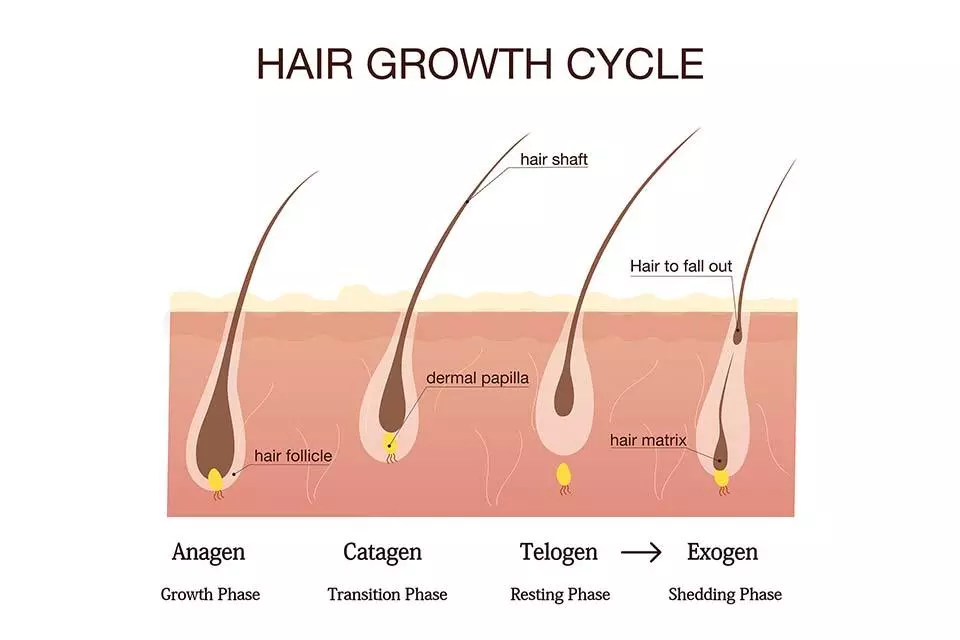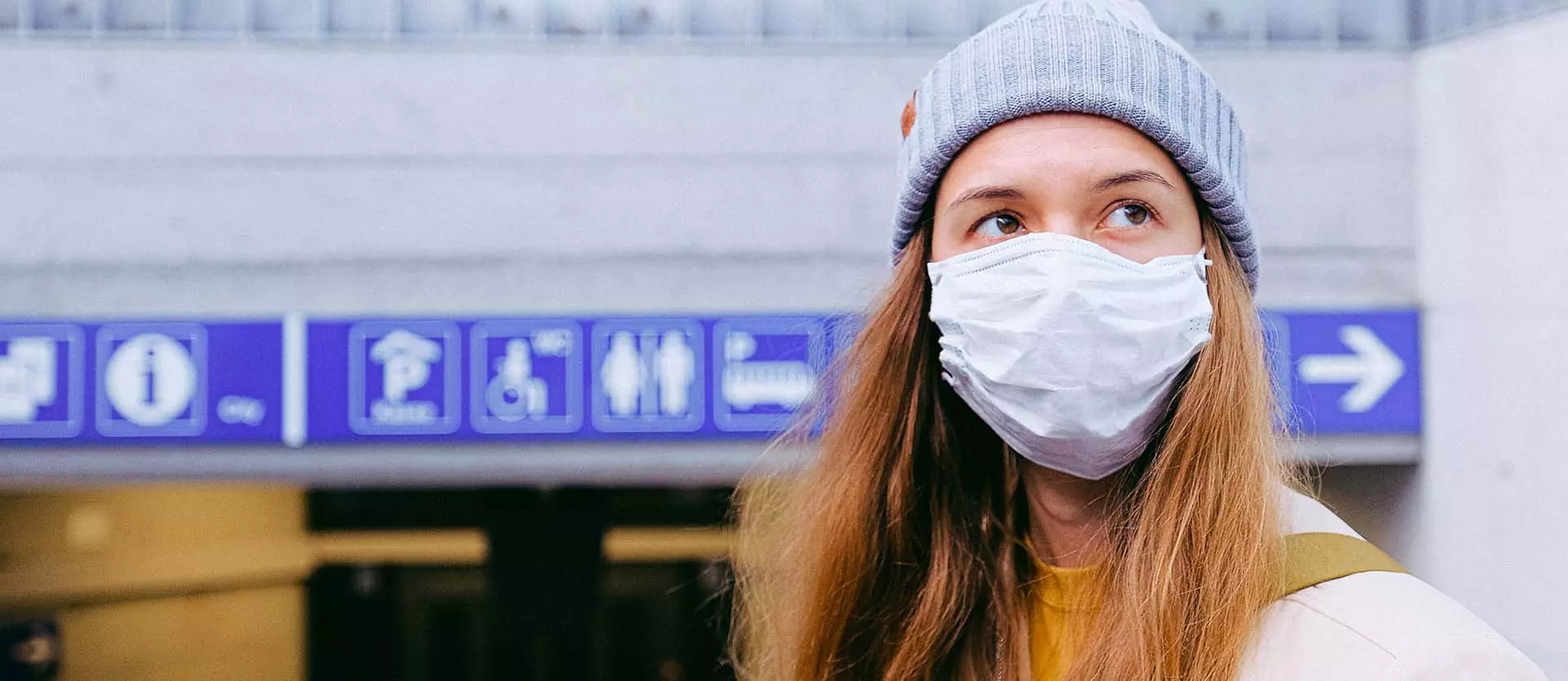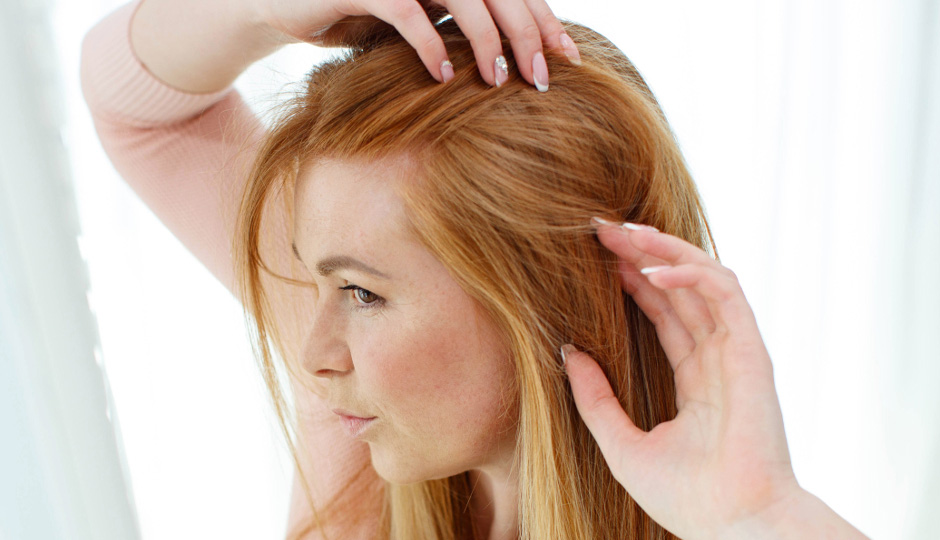The COVID-19 virus has not only become a serious challenge to our health, but also with recapturing our image and restoring our emotional well-being. COVID-19 virus sufferers commonly experience high fever which often can result in an accelerated hair shedding known as Telogen Effluvium. While not an immediate side effect, considerable hair loss can take place in the two to three month period following recovery of COVID-19. While analysis is still ongoing, this common hair loss trigger seems to be the current agreed consensus among physicians.
Growth Phases & Shedding
Our hairs are supposed to shed, only after years of life cycles. It is normal for us to shed typically 50 to 100 hairs per day, but with a head of hair upwards of 100,000 in numbers, our daily shedding is not really noticed. Hairs shed daily are continuously being replaced by new growth from the same follicles, unless there are other factors such as weakened follicles that have lost the ability to produce new hairs. At any given time, approximately 85-90% of hairs on your head are in the actively growing Anagen phase, typically about 3-5% are in the Catagen transitional phase, and the remaining percentage are in the Telogen resting phase. The Telogen hairs are dormant while club hairs form. These are the hairs that we shed each day during the final Exogen Phase. When all phases are functioning as they naturally should, our scalp maintains the normal hair coverage we enjoy every day.

Telogen Effluvium & Triggers
Telogen Effluvium can take place when a traumatic shock or change to the body occurs and pushes more hairs than normal into the Telogen phase. Up to 300 hairs per day can shed instead of the typical 50 to 100 and 30-50% of hair can stop growing, and enter into the resting phase before shedding. Hair loss (or more accurately hair shedding) at this accelerated rate will make hair coverage on the scalp increasingly sparse, and scalp concealment significantly more challenging when styling your hair.
Telogen Effluvium can be triggered by different factors including:
- Surgery
- Major Physical Trauma
- Major Physical Stress
- High Fever, Severe Infection, or Other Illness
- Extreme Weight Loss
- Extreme Change in Diet
- Abrupt Hormonal Changes including those associated with Child Birth & Menopause
- Iron Deficiency
- Hypothyroidism
- Some Medications
The resulting abnormal growth cycle shift is not a new ailment, but the stressful body events of COVID-19 symptoms are the defining elements that bring Telogen Effluvium on.
Risk Factors
There are risk factors associated with COVID-19 and Telogen Effluvium related hair loss, but sudden hair loss can actually take place when an emotionally traumatic occurrence is experienced. Pandemic stress can also trigger hair loss without even being infected with COVID-19. This is an unfortunate, but reasonable reaction, since our bodies often don’t react well stressful factors.
Nutrition is a major factor as our bodies require nutrients to build healthy, growing hair. Biotin, Vitamin D, and Iron absolutely play a role, and higher levels of Iron allow for better support for hair than someone who has physical issues or is anemic. The body doesn’t necessarily see the hair as “essential,” so if you have low Iron in your body, it’s going to shift that to create red blood cells instead of its focus on making hair.
Some people can get extremely ill and not have hair loss afterward, while others with mild illness can experience a high degree of hair loss. Genetic predisposition is a logical explanation for this. Our individual ability to heal or recover differs greatly from person to person. The human body is an amazing creation, but we all react to illnesses and medications to varying degrees and sometimes in manners significantly different.
COVID-19 Aftermath & Restoratives
Telogen Effluvium related thinning hair is usually temporary, and hair phases can take up to 6 months to normalize and will vary according to your body’s own regenerative ability. If you have recovered from COVID-19 and are now experiencing hair loss, it is highly recommended that you reach out to a medical professional to rule out other contributing factors such as medications you may be taking, improper nutrition, or hormonal imbalances.
Addressing important issues such as stress and nutrition management are vitally important and a necessary key to your success for recovery of Telogen Effluvium. Adherence to recommended protocols using our naturally based CRLAB Trichological products that cleanses, delivers nutrition, and balances the scalp as well as FDA approved CRLAB TricoGlam Laser Hair Therapy devices are also effective components that can greatly aid you in your recovery. Whether you are experiencing Telogen Effluvium related hair thinning, or if other factors are present, the knowledgeable professionals at Elite Hair Loss Solutions are ready to assist you.







